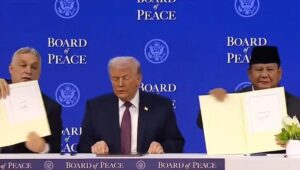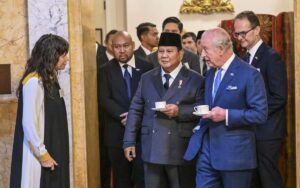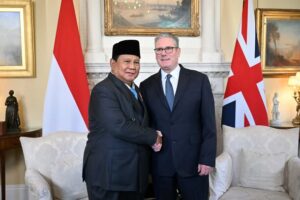Indonesian Government Drives Carbon Economic Value Implementation for NDC Targets

Jakarta, The Gulf Observer: The Indonesian government, led by Minister of Environment and Forestry Siti Nurbaya Bakar, underscores the importance of multi-stakeholder collaboration to achieve the Nationally Determined Contribution (NDC) target.
Minister Bakar emphasized this commitment on Tuesday, highlighting the steps taken, including the establishment of a carbon exchange that has generated quality carbon units.
To date, the carbon exchange has produced 494,254 tons of carbon dioxide equivalent (CO2e), with transactions amounting to Rp30.90 billion (approximately US$2 million) involving 26 service users. Minister Bakar affirmed her ministry’s ongoing efforts to monitor carbon trading transactions through the exchange and study the actors involved in the performance-based payment scheme of the carbon economic value mechanism.
During the period from 2014 to 2016, Indonesia received performance-based payments of US$103.8 million from the Reducing Emissions from Deforestation and Forest Degradation (REDD+) program, aimed at achieving an emission reduction of 20.25 million tons of CO2e.
Additionally, Indonesia secured a results-based contribution of US$156 million from the Norwegian government for emissions reduction of 31.2 million CO2e. In the subsequent years, Indonesia received US$100 million from the Forest Carbon Partnership Facility (FCPF) and US$70 million from Bio-CF for reducing 22 million tons and 14 million tons of CO2e, respectively.
As of January 2024, results-based payments and performance-based contributions have totaled US$384.8 million, expected to reach US$454.8 million by 2025. Minister Bakar noted that these figures exclude other contributions to the Environmental Fund Management Agency (BPDLH) through the contribution agenda, highlighting the substantial support received for Indonesia’s environmental initiatives.
Indonesia currently enforces four regulations aimed at controlling greenhouse gas emissions, emphasizing the implementation of carbon economic value to assist in achieving NDC targets, controlling emissions, and accelerating sustainable national development. The nation’s commitment to these initiatives showcases its dedication to environmental stewardship and global climate goals.


